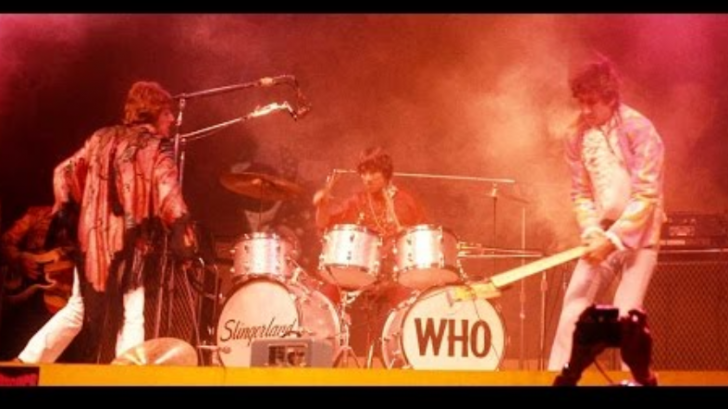“My Generation,” The Who’s hit and one of their most recognized songs.
Penned in 1965 by Pete Townshend, at the age of twenty, was directed at rebellious British youth called “mod”. It was released as a single on November 5, 1965, reaching # 2 in the UK, the highest on the UK charts. And # 74 in the United States. “My Generation” appeared on the debut album of the band of the same name. In the album credits, the song is credited to both Townshend and Elgar.
When The Who performed the mod hymns such as “The Kids Are Alright” and “My Generation” in the United States it was remembered by the phrase “Hope I die before I get old,” and that many consider one of the first punk songs [citation needed]. The album also contained two versions of James Brown. “The Who Sings My Generation” is often considered one of the most important albums in rock history, and John Entwistle’s performance stands out (especially in the song that gives the album its name).
Another highlight of “My Generation” is the stuttering – angry and frustrated – with which Daltrey performed the song. There are several stories about the reason for this pronunciation. One of them is that the song started out as slow spoken blues, without the stutter, but after being inspired by the John Lee Hooker song “Stuttering Blues,” Townshend reworked the song in its current form. Although another version points out that Pete suggested that Daltrey stutter make the song sound like a drugged British “mod.” It is also said, although less frequently, that stuttering was introduced to frame the group the phrase: “Why don’t you all fff… fade away!” However, producer Shel Talmy insisted that it was simply “one of those happy accidents” that he believed should keep happening. Roger Daltrey has also commented that he had not rehearsed the song prior to recording and that he was unable to hear his own voice through the monitors. The stuttering occurred when he was trying to fit the lyrics to the music as best he could and the band decided that it worked well enough to keep it up. Perhaps the most striking element of the song is the lyrics, considered one of the most distilled statements of youth rebellion in rock history. The track’s tone only helped make it a recognized ancestor of the punk rock movement.
The song was named # 11 by Rolling Stone magazine on its list of “The 500 Greatest Songs of All Time” and # 13 on the list of the “100 Best Rock & Roll Songs” by the VH1 television network. It is also part of the “500 Songs That Made Rock and Roll” in the Rock Hall of Fame and is inducted into the Grammy Hall of Fame for its “historical, artistic and significant” value. In 2009 it was named # 37 “Greatest Hard Rock Song” by VH1.
Townshend revealed that he wrote the song on a train, taking inspiration from the Queen Mother, whom he accused of having his Packard hearse towed off a Belgravia street, for being offended by the vision he had during his daily route through the neighborhood. . Townshend credited Mose Allison’s “Young Man Blues” as the inspiration for the song, stating, “Without Mose I wouldn’t have written My Generation.” Also, he told Rolling Stone magazine in 1985 that “My Generation was much more than finding a place in society.”

